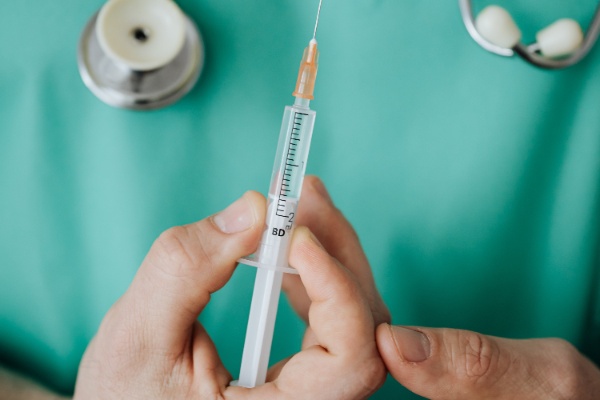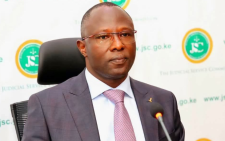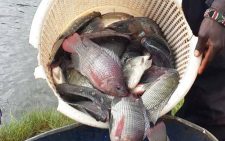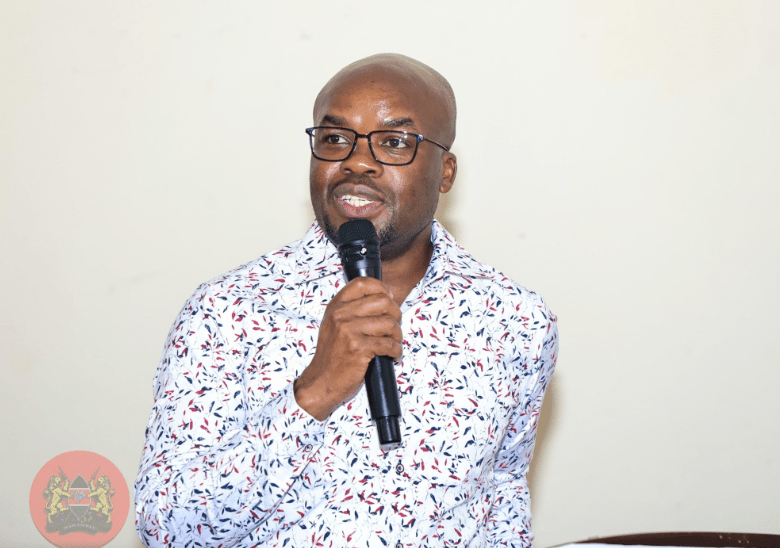Kenya faces challenges in meeting vaccine co-financing obligations

Kenya is once again staring at a possibility of routine vaccine shortage for having not contributed a mandatory Sh1.6 billion as part of its co-financing agreement with the Global Alliance for Vaccines and Immunization (GAVI).
On January 28 this year, Gavi wrote to the government through Health Cabinet Secretary, Dr. Deborah Barasa, but almost two months on, there is no response.
“Gavi is sending this co-financing reminder letter as the Kenya co-financing obligation for 2024-2025 fiscal year, totalling USD$ 12,485,880, remains fully outstanding,” the GAVI report says.
The total co-financing requirement for the fiscal year 2024-2025 stands at USD $12,485,880 (Sh1, 598, 192, 640) but to date, no contribution has been made, the Gavi letter seen by this publication indicates.
This outstanding balance according to the letter authored by Billie-Jean Nieuwenhuys, is due in full by June 30, 2025 and further cautions that failure to meet this deadline could have serious consequences for the country’s vaccine supply.
“Honourable Cabinet Secretary, we call on your leadership to take proactive actions to ensure that the Gavi co-financing payment is made early enough to ensure adequate and timely procurement of vaccines,” the letter reads in part, pointing out that active monitoring of vaccines and related immunisation commodities by Kenya will trigger early warning signals to inform co-financing planning, release and mitigate stock-outs which is critical to sustaining high immunisation coverage.
A delay in payments can lead to vaccine stock-outs, as there is typically a three-month lead time between the payment of co-financing obligations and the delivery of doses.
In the co-financing agreement, if a country is in default for more than one year, support for the relevant vaccine will be suspended until all the arrears for that vaccine are paid in full.
“Gavi may also suspend new vaccine support for vaccine programmes already approved but not yet introduced,” GAVI report says.
Co-financing is the financial commitment that countries make to support vaccine procurement, and is essential for maintaining Kenya’s immunization programs. However, from the contents of the letter, Kenya is currently facing significant challenges in meeting its co-financing obligations.
Further, according to Gavi, the implications of default may lead to suspension in disbursements of funds for Health System and Immunisation Strengthening (HSIS), even if the defaulting country applies. Its application for new vaccine support will not be approved.
“A country in default can still apply to receive support for outbreak response, including relevant vaccine procurement and operational cost support to respond to outbreaks,” Gavi says in the letter, but this will be after engaging with the defaulting country to identify an appropriate payment plan.
In case Kenya wishes to exit default, it will be required to; agree on a payment plan, and pay the co-financing requirements of the current year plus a first tranche of the arrears as per the plan.
Kenya has been an active participant in the GAVI initiative, which has greatly expanded access to vaccines and strengthened the country’s immunization infrastructure.
However, the delays in meeting co-financing obligations have hindered progress. Countries that delay payments often experience higher risks of stock shortages, which can affect vaccination coverage and, ultimately, public health outcomes.
Subsequently, Health Civil Society Organisations (CSOs) are urging the National Treasury to expedite the payment of these obligations to avoid disrupting the country’s immunization program.
For Kenya, this could jeopardize access to essential vaccines, including for diseases like HPV, malaria, and rotavirus, which are crucial for protecting the population.
“To avoid stock-outs, the timely payment of co-financing obligations is critical. For instance, vaccines like the Malaria and Pentavalent vaccines, which require significant financial support, are in jeopardy if payments are not made by the recommended dates,” Dr. Margaret Lubaale, Health NGOs Network (HENNET) Executive Director said yesterday.
Kenya’s total co-financing requirement encompasses vaccines that protect against a variety of diseases, and Dr. Lubaale states that ensuring the timely procurement of these vaccines is essential for maintaining the health of the population.
GAVI has outlined the potential consequences of defaulting on co-financing obligations.
In a statement, Hennet called on the government to fast-track the process, warning that any financial gaps could lead to vaccine shortages, undermining years of progress in vaccination efforts.
“We request the government to honour the co-financing obligation for smooth implementation of the national vaccine program and achievement of our set immunization targets as well as maintaining cordial relationship with donors who have played a big role in the immunization coverage we have,” said Faith Ndungu, Advocacy and Communication Manager at Hennet.
Immunization is among the programs which rely heavily on donor funding and are a cause for concern as the country is debased to Lower middle income status and therefore need to progressively increase the domestic allocations to cater for these programmes in order to maintain the gains made. (Health sector Medium Term Expenditure Framework (MTEF) for the Period 2023/24-2025/26)
With the deadline for the 2024-2025 co-financing payment fast approaching, the Health CSOs prevail upon the government to act quickly to ensure that vaccines continue to reach the populations that need them the most.
“Only through sustained commitment and timely financial contributions can Kenya maintain its immunization success and protect future generations from vaccine-preventable diseases,” says Ndung’u, noting that the problem is that Kenya stands a risk of losing GAVI financing which will affect immunization financing.
Kenya’s vaccine financing has seen significant progress in recent years, with government funding covering between 21 percent and 50 percent of routine immunization expenditures from 2017 to 2022.
While this is a step towards achieving self-sufficiency, the country still faces challenges in fully funding its immunization programs. Assessment of government spending on vaccines accounts for just 0.5 percent to 1 percent of Kenya’s current health expenditures, and 1 percent to 2 percent of domestic general government health expenditures.
With the expectation that Kenya will transition away from the Gavi support by 2027, the entire immunization budget will soon need to be funded domestically.
The Ministry has introduced three (3) new vaccines; the Yellow Fever and Malaria vaccines in high-risk counties, including the Human Papillomavirus (HPV) vaccines against cervical cancer in the Health sector Medium Term Expenditure Framework (MTEF) for the Period 2023/24-2025/26).
Vaccination is one of the most cost-effective public health interventions, playing a critical role in reducing child mortality and morbidity. The World Health Organization (WHO) estimates that immunization prevents 4.4 million deaths annually.













